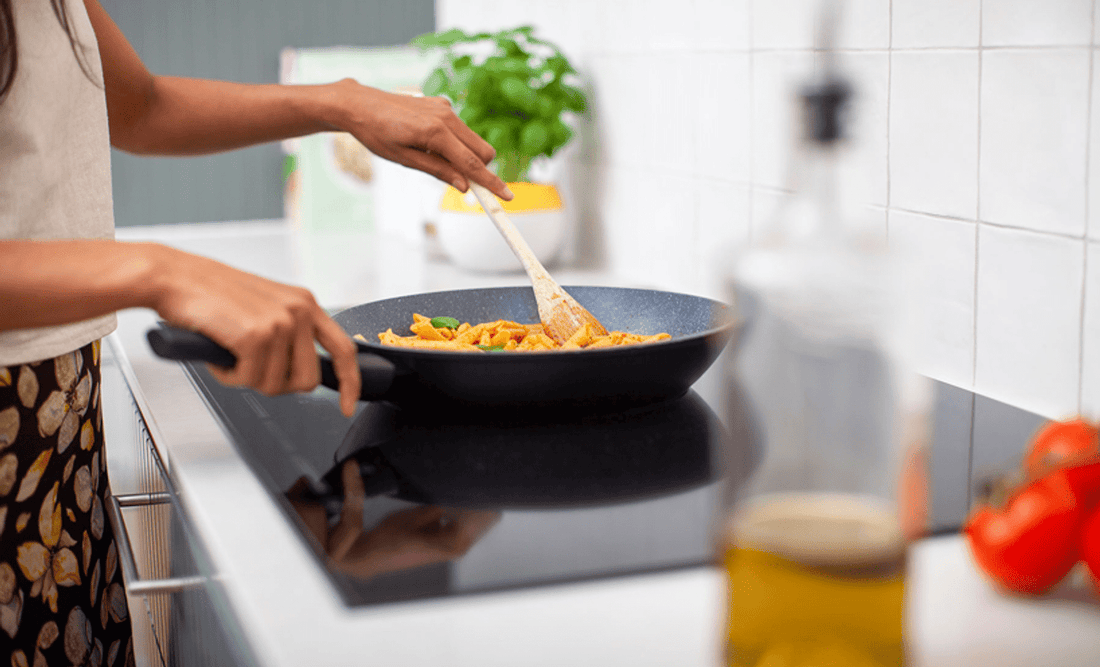Cast Iron Becoming Smoky on Induction: What BBQ Lovers Need to Know
Written By Avi Green
For barbecue enthusiasts who crave the perfect sear and smokiness in their dishes, understanding why your cast iron becomes smoky on induction can enhance your cooking experience significantly. As more people are moving towards the convenience of induction cooktops, it's essential to know how this affects the performance of your beloved cast iron skillet.
Induction cooking is a modern marvel that offers rapid heating and precise temperature control. However, when your cast iron becomes smoky on induction, it might seem counterintuitive. Let's delve into what causes this and how you can manage it for your next cook-off.

Why Does Cast Iron Become Smoky?
One of the primary reasons your cast iron skillet becomes smoky on an induction cooktop is due to the high heat settings often used during cooking. Cast iron is known for its excellent heat retention, which makes it a favorite for grilling and searing meats. However, when used on induction, the rapid heating can cause the oil or seasoning on the pan's surface to smoke.
Another factor is the seasoning layer. A well-seasoned cast iron skillet has a layer of polymerized oil that protects it from rust and creates a non-stick surface. When exposed to high temperatures, especially on induction, this layer can burn off, leading to smoke. [Learn more about heat retention of cast iron on induction](https://grilling4all.com/blogs/blog/heat-retention-of-cast-iron-on-induction).
Managing Smoke When Cooking with Cast Iron
To manage smoke effectively, first, ensure your skillet is properly seasoned. A well-maintained seasoning will not only reduce smoke but also enhance the flavor of your dishes. Regularly re-season your skillet by applying a thin layer of oil and baking it at a high temperature to reinforce the protective layer.
Another tip is to adjust the heat settings. Unlike traditional gas or electric stoves, induction cooktops heat the cookware directly, which means you often need to lower the heat settings to achieve the same cooking results. Start with medium heat and gradually increase it if necessary. [Discover tips on how to prevent uneven heating on induction](https://grilling4all.com/blogs/blog/cast-iron-not-heating-evenly-on-induction).
Choosing the Right Oil
When using cast iron on induction, the type of oil you use can significantly impact the amount of smoke produced. Oils with a high smoke point, such as avocado or grapeseed oil, are less likely to smoke compared to oils with a lower smoke point, like olive oil. This simple change can make a world of difference in your cooking experience.
Benefits of Using Cast Iron on Induction
Despite the challenge of smoke, there are numerous benefits to using cast iron on induction. Induction cooktops provide consistent and even heating, which is ideal for achieving the perfect sear on meats. Additionally, since cast iron retains heat well, it allows for even cooking, which is crucial for barbecue enthusiasts who are particular about their grill marks and caramelization.
Moreover, induction cooktops are energy-efficient and allow for precise temperature control, making them a favorite among those who are serious about their cooking. [Find out more about using cast iron on induction cooktops](https://www.lodgecastiron.com/blogs/story/can-i-use-cast-iron-induction-cooktop).
Maintaining Your Cast Iron
Maintaining your cast iron skillet is key to reducing smoke and ensuring longevity. After each use, clean your skillet with hot water and a stiff brush. Avoid using soap, as it can strip away the seasoning. Dry it thoroughly and apply a light coat of oil to keep it seasoned.
For stubborn food residue, use a paste of salt and water to scrub the surface gently. This method helps in cleaning without damaging the seasoning layer. [Explore more tips on maintaining your cast iron](https://grilling4all.com/blogs/blog/amazon-basics-cast-iron-on-induction).
Conclusion
Understanding why your cast iron becomes smoky on induction is essential for any barbecue enthusiast looking to refine their grilling technique. By adjusting your cooking practices and maintaining your cookware, you can enjoy all the benefits of cast iron without the inconvenience of excessive smoke.
Whether you're searing a steak to perfection or achieving the ideal crust on a piece of chicken, knowing how to work with your cookware will elevate your cooking game. Embrace the art of grilling with cast iron on induction and savor the flavors it brings to your culinary creations.

Frequently Asked Questions
Why is my cast iron smoking on induction?
The smoking is often due to high heat settings which cause the oil or seasoning to burn. Adjusting the heat and ensuring proper seasoning can reduce smoke.
How can I prevent my cast iron from smoking on induction?
Use oils with a high smoke point, start with lower heat settings, and ensure your pan is well-seasoned to minimize smoking.
Is cast iron good for induction cooking?
Yes, cast iron is excellent for induction cooking due to its heat retention and even cooking properties. However, managing smoke is crucial for a pleasant cooking experience.



